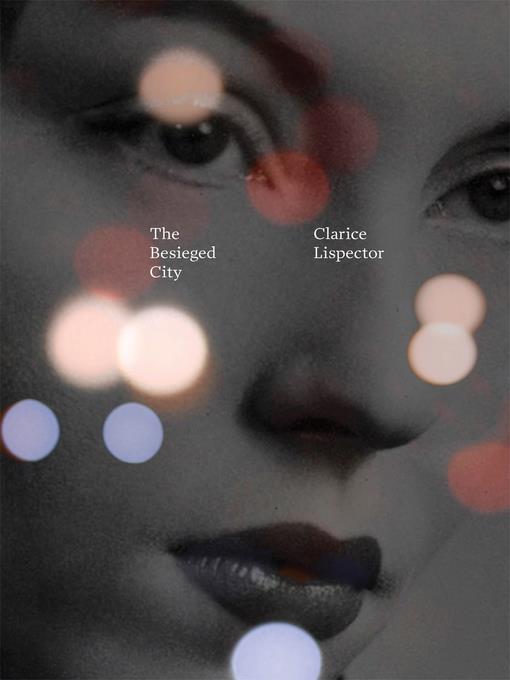
The Besieged City
- اطلاعات
- نقد و بررسی
- دیدگاه کاربران
نقد و بررسی

Starred review from February 1, 2019
In her third novel, acclaimed Brazilian luminary Lispector (The Chandelier, 2018, etc.) merges the personal with the mythopoetic in the story of a town transforming into a city and a girl observing it.Lucrécia Neves lives with her widowed mother in São Geraldo, a place "already mingling some progress with the smell of the stable." Like the female protagonists in other Lispector novels, she is unremarkable, neither intelligent nor imaginative. "Her modest function...was: to look." On long walks through town and into the surrounding countryside she sees things "as a horse sees them," and her observation is linked to the reality of the thing itself. "Reality was needing the girl in order to have a shape...what was seen became her vague story." Seeing, she creates the city. The dense, vivid prose, frequent use of passive voice, close interiority, and dazzling observation already familiar to fans of Lispector's distinctive style are coupled here with a dreamlike surreality. Lucrécia is described at different points as having hooves and wings ("With monotonous and regular flapping she was flying in the darkness above the city"). Over the course of the novel she takes flirtatious walks, carries on insipid conversations, fights with her mother, marries a wealthy older man, moves to a big city, falls in love with someone unavailable. There are insights into relationships familial and matrimonial and unexpected flashes of humor ("Something without interest to anyone was happening, surely 'real life.' ") But what matters most is Lucrécia's way of seeing, which she continues even in sleep, "rubbing, forging, polishing, lathing, sculpting, the demented master-carpenter--preparing palely every night the material of the city." Her visionary function is essential and timeless. "When all the cities were erected with their names, they would destroy themselves anew....Upon the rubble horses would reappear announcing the rebirth of the old reality, their backs without riders. Because thus it had always been. Until a few men would tie them to wagons, once again erecting a city that they wouldn't understand, once again building, with innocent skill, the things. And then once more they'd need a pointing finger to give them their old names." Underpinning the novel are questions about gendered power, about time and the permanent and ephemeral. "And Lucrécia's, was that the true, surrendered life? the one that gets lost, the waves that rise furiously over the rocks, the mortal fragrance of flowers?"Dreamlike, dense, original, this challenging novel has a cumulative power. Highly recommended.
COPYRIGHT(2019) Kirkus Reviews, ALL RIGHTS RESERVED.

February 25, 2019
Lispector’s singular 1949 novel, newly translated by Lorenz, unfolds as a series of narrative snapshots taken over the life of a woman. In the quaint township of Sao Geraldo, sometime in the 1920s, young Lucrecia Neves enjoys a tumultuous festival in the company of an aggressive would-be suitor, Lieutenant Felipe. She attends a festive ball, avoids Felipe’s attempted kiss, and shares her boredom and restlessness with her stubborn mother, Ana. But mostly, she describes the world around her in evocative detail. After the festive evening, Lucrecia sleeps “like a candle.” The township, not so much; “ants, rats, wasps, pink bats, herds of mares emerged sleepwalking from the sewers.” Lucrecia later finds love with the courtly and wealthy Matteo Correia, who lavishly indulges her. As she transitions from eligible ingénue to settled married lady, Lucrecia continues to be intensely attuned to her environment. Her health is not what it should be. She observes the patrolling of the local lighthouse, a spider industriously spins a web in her window and, accompanied by the solicitous Doctor Lucas, takes a long constitutional, feeling a strong connection to the land. And life goes on. Lispector’s novel offers a pristine view of an ordinary life, told in her forceful, one-of-a-kind voice that captures isolated moments with poetic intensity.




دیدگاه کاربران